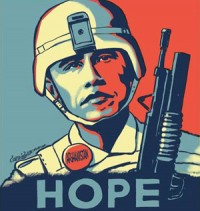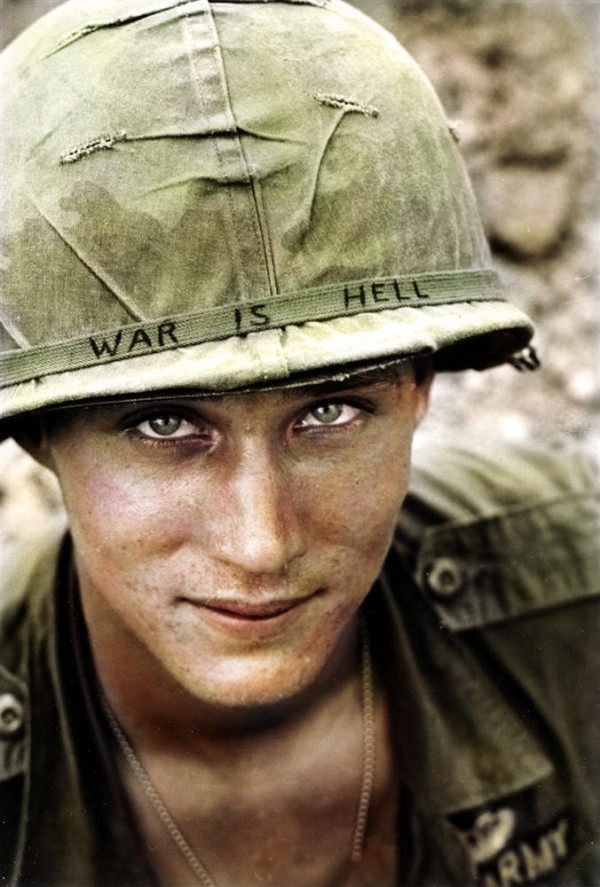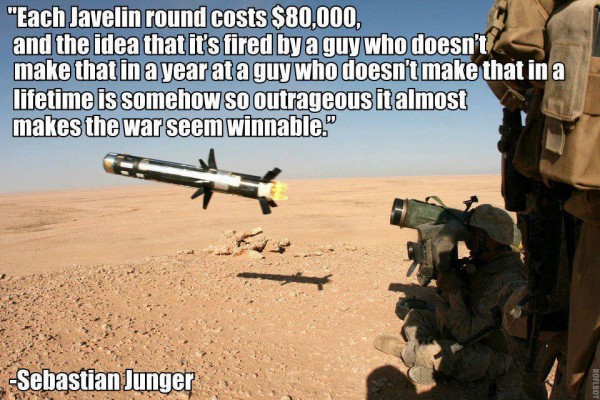TOM DISPATCH: 1. American-style war doesn’t work. Just ask yourself: Are there fewer terrorists or more in our world almost 13 years after the 9/11 attacks? Are al-Qaeda-like groups more or less common? Are they more or less well organized? Do they have more or fewer members? The answers to those questions are obvious: more, more, more, and more. In fact, according to a new RAND report, between 2010 and 2013 alone, jihadist groups grew by 58%, their fighters doubled, and their attacks nearly tripled. On September 12, 2001, al-Qaeda was a relatively small organization with a few camps in arguably the most feudal and backward country on the planet, and tiny numbers of adherents scattered elsewhere around the world. Today, al-Qaeda-style outfits and jihadist groups control significant parts of Syria, Iraq, Pakistan, and even Yemen, and are thriving and spreading in parts of Africa as well. […]
2. American-style wars don’t solve problems. In these years, you could argue that not a single U.S. military campaign or militarized act ordered by Washington solved a single problem  anywhere. In fact, it’s possible that just about every military move Washington has made only increased the burden of problems on this planet. To make the case, you don’t even have to focus on the obvious like, for example, the way a special operations and drone campaign in Yemen has actually al-Qaeda-ized some of that country’s rural areas. Take instead a rare Washington “success”: the killing of Osama bin Laden in a special ops raid in Abbottabad, Pakistan. (And leave aside the way even that act was over-militarized: an unarmed Bin Laden was shot down in his Pakistani lair largely, it’s plausible to assume, because officials in Washington feared what once would have been the American way — putting him on trial in a U.S. civilian court for his crimes.) We now know that, in the hunt for bin Laden, the CIA launched a fake hepatitis B vaccination project. Though it proved of no use, once revealed it made local jihadists so nervous about medical health teams that they began killing groups of polio vaccination workers, an urge that has since spread to Boko Haram-controlled areas of Nigeria. In this way, according to Columbia University public health expert Leslie Roberts, “the distrust sowed by the sham campaign in Pakistan could conceivably postpone polio eradication for 20 years, leading to 100,000 more cases that might otherwise not have occurred.” […]
anywhere. In fact, it’s possible that just about every military move Washington has made only increased the burden of problems on this planet. To make the case, you don’t even have to focus on the obvious like, for example, the way a special operations and drone campaign in Yemen has actually al-Qaeda-ized some of that country’s rural areas. Take instead a rare Washington “success”: the killing of Osama bin Laden in a special ops raid in Abbottabad, Pakistan. (And leave aside the way even that act was over-militarized: an unarmed Bin Laden was shot down in his Pakistani lair largely, it’s plausible to assume, because officials in Washington feared what once would have been the American way — putting him on trial in a U.S. civilian court for his crimes.) We now know that, in the hunt for bin Laden, the CIA launched a fake hepatitis B vaccination project. Though it proved of no use, once revealed it made local jihadists so nervous about medical health teams that they began killing groups of polio vaccination workers, an urge that has since spread to Boko Haram-controlled areas of Nigeria. In this way, according to Columbia University public health expert Leslie Roberts, “the distrust sowed by the sham campaign in Pakistan could conceivably postpone polio eradication for 20 years, leading to 100,000 more cases that might otherwise not have occurred.” […]
3. American-style war is a destabilizing force. Just look at the effects of American war in the twenty-first century. It’s clear, for instance, that the U.S. invasion of Iraq in 2003 unleashed a brutal, bloody, Sunni-Shiite civil war across the region (as well as the Arab Spring, one might argue). One result of that invasion and the subsequent occupation, as well as of the wars and civil wars that followed: the deaths of hundreds of thousands of Iraqis, Syrians, and Lebanese, while major areas of Syria and some parts of Iraq have fallen into the hands of armed supporters of al-Qaeda or, in one major case, a group that didn’t find that organization extreme enough. A significant part of the oil heartlands of the planet is, that is, being destabilized. […]
4. The U.S. military can’t win its wars. This is so obvious (though seldom said) that it hardly has to be explained. The U.S. military has not won a serious engagement since World War II: the results of wars in Korea, Vietnam, Afghanistan, and Iraq ranged  from stalemate to defeat and disaster. With the exception of a couple of campaigns against essentially no one (in Grenada and Panama), nothing, including the “Global War on Terror,” would qualify as a success on its own terms, no less anyone else’s. This was true, strategically speaking, despite the fact that, in all these wars, the U.S. controlled the air space, the seas (where relevant), and just about any field of battle where the enemy might be met. Its firepower was overwhelming and its ability to lose in small-scale combat just about nil. It would be folly to imagine that this record represents the historical norm. It doesn’t. It might be more relevant to suggest that the sorts of imperial wars and wars of pacification the U.S. has fought in recent times, often against poorly armed, minimally trained, minority insurgencies (or terror outfits), are simply unwinnable. They seem to generate their own resistance. Their brutalities and even their “victories” simply act as recruitment posters for the enemy.
from stalemate to defeat and disaster. With the exception of a couple of campaigns against essentially no one (in Grenada and Panama), nothing, including the “Global War on Terror,” would qualify as a success on its own terms, no less anyone else’s. This was true, strategically speaking, despite the fact that, in all these wars, the U.S. controlled the air space, the seas (where relevant), and just about any field of battle where the enemy might be met. Its firepower was overwhelming and its ability to lose in small-scale combat just about nil. It would be folly to imagine that this record represents the historical norm. It doesn’t. It might be more relevant to suggest that the sorts of imperial wars and wars of pacification the U.S. has fought in recent times, often against poorly armed, minimally trained, minority insurgencies (or terror outfits), are simply unwinnable. They seem to generate their own resistance. Their brutalities and even their “victories” simply act as recruitment posters for the enemy.
5. The U.S. military is not “the finest fighting force the world has ever known” or “the greatest force for human liberation the world has ever known,” or any of the similar over-the-top descriptions that U.S. presidents are now regularly obligated to use. If you want the explanation for why this is so, see points one through four above. A military whose way of war doesn’t work, doesn’t solve problems, destabilizes whatever it touches, and never wins simply can’t be the greatest in history, no matter the firepower it musters. If you really need further proof of this, think about the crisis and scandals linked to the Veterans Administration. They are visibly the fruit of a military mired in frustration, despair, and defeat, not a triumphant one holding high history’s banner of victory. MORE


